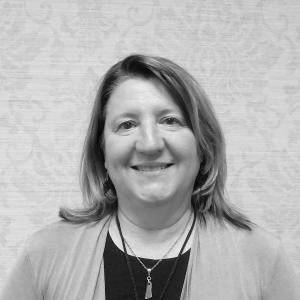Kathy Evans

Collecting Stories at the National Working Waterfronts and Waterways Symposium 2018
Collecting Stories at the National Working Waterfronts and Waterways Symposium 2018 is a project of Maine Sea Grant, College of the Atlantic, the Island Institute, and the National Working Waterfront Network.
National Capital Contracting
Kathy Evans is recognized for her pivotal role as the environmental program manager at the West Michigan Shoreline Regional Development Commission, where she has been instrumental in spearheading environmental initiatives. Her career is marked by a deep commitment to environmental stewardship, particularly in the context of maintaining and revitalizing the working waterfront in Muskegon, Michigan. Evans's expertise lies in navigating the complex interplay between environmental conservation and economic development, ensuring that efforts to revitalize the waterfront align with sustainable practices. Her leadership has been crucial in bringing together diverse stakeholders, including local community members, government entities, and environmental organizations, to collaborate on projects that aim to restore the ecological health of the waterfront while also promoting its economic viability. Evans's work is characterized by a forward-thinking approach that not only addresses current environmental challenges but also anticipates future needs, ensuring that the waterfront remains a vibrant and resilient asset for the community. Her dedication to the cause has made her a respected figure in the field of environmental management and a key voice in discussions about the future of Muskegon's waterfront.
Scope and Content Note
The oral history interview with Kathy Evans provides a comprehensive overview of the environmental restoration and economic development efforts along the Muskegon, Michigan, waterfront. Throughout the interview, Evans delves into the multifaceted challenges faced in cleaning up and restoring the area, highlighting the delicate balance between preserving the waterfront's industrial heritage and fostering sustainable development. She discusses the strategies employed to engage the community in the planning process, ensuring that the voices of local residents are heard and incorporated into the vision for the waterfront's future. Evans also reflects on the successes achieved through collaborative efforts with various organizations, which have been instrumental in driving positive change in the region. The interview captures Evans's insights on the importance of maintaining a working waterfront that supports both the local economy and the environmental integrity of the area. She shares her enthusiasm for the community's response to the changes, noting the collective effort to create a vibrant and resilient future for the waterfront. The content of the interview serves as a valuable record of the ongoing efforts to balance economic growth with environmental conservation in Muskegon, and it underscores the critical role that community involvement and sustainable planning play in the success of such initiatives.
Please Note: The oral histories in this collection are protected by copyright and have been created for educational, research and personal use as described by the Fair Use Doctrine in the U.S. Copyright law. Please reach out Voices@noaa.gov to let us know how these interviews are being used in your research, project, exhibit, etc. The Voices staff can help provide other useful resources related to your inquiry.
The NOAA mission is to understand and predict changes in climate, weather, oceans, and coasts, to share that knowledge and information with others, and to conserve and manage coastal and marine ecosystems and resources. The Voices Oral History Archives offers public access to a wide range of accounts, including historical materials that are products of their particular times, and may contain offensive language or negative stereotypes.
Voices Oral History Archives does not verify the accuracy of materials submitted to us. The opinions expressed in the interviews are those of the interviewee only. The interviews here have been made available to the public only after the interviewer has confirmed that they have obtained consent.
